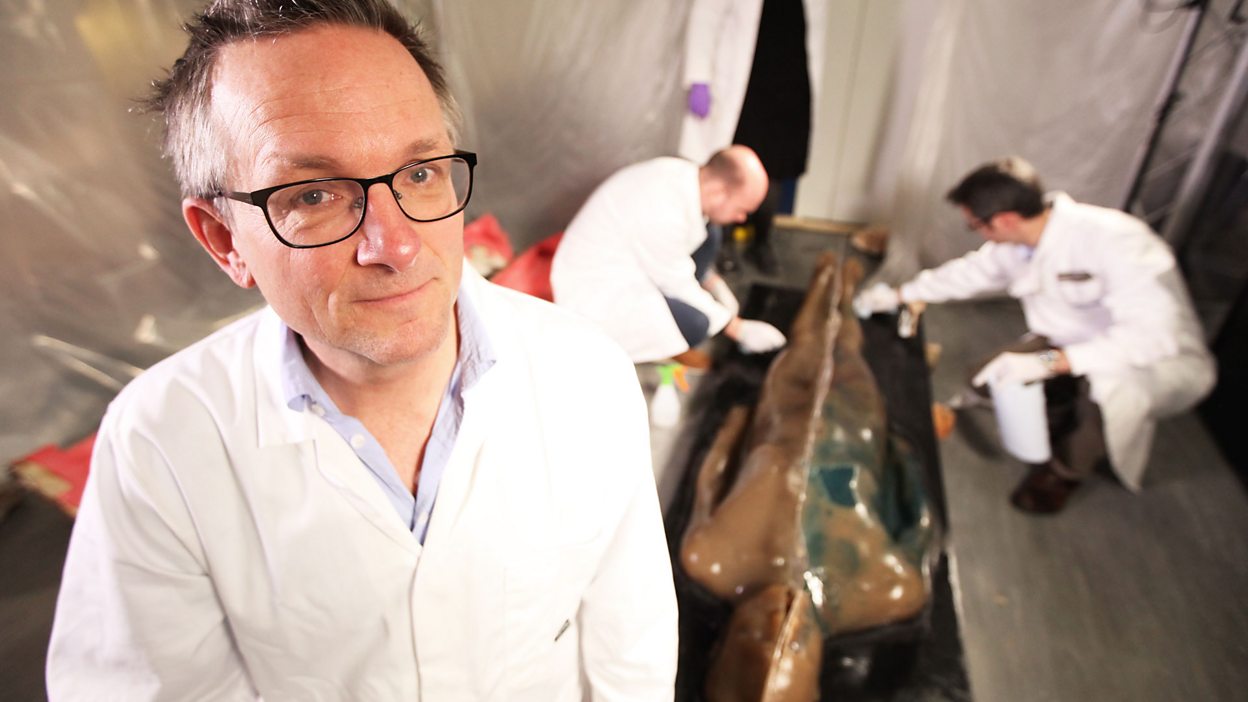#scicomm review: Michael Mosley vs the Superbugs (BBC)
One of the things I'm really excited to introduce as part of my #kirstyblogseverydayinjune challenge is a new series of posts - #scicomm reviews. I love watching a good documentary or reading a good book that covers science in a non-academic way. It's relaxing, fun and introduces me to areas of science I don't study and become fascinated by, or areas I do and love to see portrayed in a different way (and see how accurate I think they did it!).
So the first thing I'd like to review from my #scicomm perspective is a recent BBC TV programme - Michael Mosley vs the Superbugs. The programme discussed antibiotic resistance and some of the new research exploring ways to avoid using broad spectrum antibiotics. And I thought it was fantastic.
The show opened with a very visual, if a little gross/awesome, representation of the skin microbiota - the different types of bacteria that live on human skin, completely natural and harmless in healthy people. The show's host, Michael Mosley had a lifesize cast of agar made and then covered his 'clone' with his skin microbiota, which researchers had collected from all the different areas of his body and swabbed the corresponding areas of the clone with. This is a novel and very eye catching version of the more mainstream agar plate experiment - as you can see in the photo above. But it was used wonderfully in the programme to discuss the effect of broad-spectrum antibodies. Half of the agar Michael clone was just normal agar, full of culture medium to encourage the bacteria to grow - which you'd normally find in plates like these ones below. And the other half of agar Michael was given a cocktail of commonly used broad-spectrum antibiotics - to see how effective they were against the bacteria found on the skin.
I couldn't help but think this was a well timed programme. With antibiotic resistance only increasing, I think its really important that the general public understand the importance of the antibiotics issue, and why it is so important to avoid the use of antibiotics unless really necessary or complete the full course of their antibiotics if prescribed.
One of the key points that always comes up in discussions about overuse of antibiotics is why do doctors still prescribe so many? But for a minute, imagine yourself as a GP, with only 10 minutes to listen to your patient's story and give them an answer. So many patients now walk into a GP surgery and expect to receive antibiotics, hoping it will make them feel better. So when you're the doctor, could you refuse giving the person in pain a drug they could help them? Or the mother the antibiotics for their child?
But the programme cleverly used two patient stories to show us a possible "world without antibiotics". Currently antibiotics really are our only treatment against bacterial infection - and we use them to prevent bacterial infection during surgery and during chemotherapy for cancer and transplant patients. But with multi-drug resistant strains of bacteria evading the mechanisms that antibiotics target, we need alternatives and we need them quickly - a topic that I think deserves its own blog post, so head back to the blog tomorrow for that one!
I couldn't help but think this was a well timed programme. With antibiotic resistance only increasing, I think its really important that the general public understand the importance of the antibiotics issue, and why it is so important to avoid the use of antibiotics unless really necessary or complete the full course of their antibiotics if prescribed.
One of the key points that always comes up in discussions about overuse of antibiotics is why do doctors still prescribe so many? But for a minute, imagine yourself as a GP, with only 10 minutes to listen to your patient's story and give them an answer. So many patients now walk into a GP surgery and expect to receive antibiotics, hoping it will make them feel better. So when you're the doctor, could you refuse giving the person in pain a drug they could help them? Or the mother the antibiotics for their child?
But the programme cleverly used two patient stories to show us a possible "world without antibiotics". Currently antibiotics really are our only treatment against bacterial infection - and we use them to prevent bacterial infection during surgery and during chemotherapy for cancer and transplant patients. But with multi-drug resistant strains of bacteria evading the mechanisms that antibiotics target, we need alternatives and we need them quickly - a topic that I think deserves its own blog post, so head back to the blog tomorrow for that one!
Overall, I thought the programme felt really well paced and described the current issue really well, without scrimping on details, but building the story piece by piece, with a personal touch too. The show focused on a few key messages and introduced current research by going into labs and speaking directly to a range of researchers. I think it was a good example of how a programme like this can be accessible to anyone and everyone.
Check it out here:
http://www.bbc.co.uk/iplayer/episode/b08qkz77/michael-mosley-vs-the-superbugs?suggid=b08qkz77
Check it out here:
http://www.bbc.co.uk/iplayer/episode/b08qkz77/michael-mosley-vs-the-superbugs?suggid=b08qkz77




Comments
Post a Comment